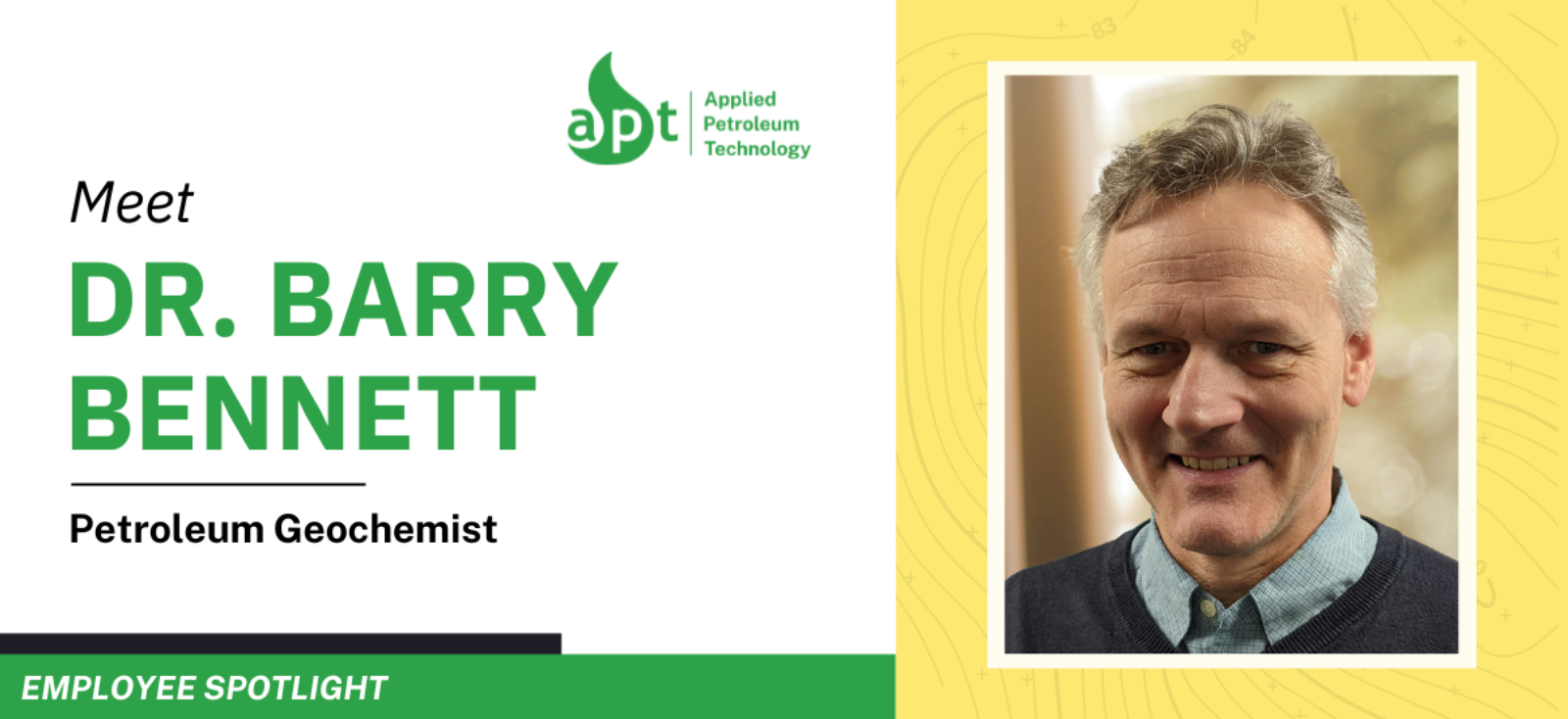Meet Barry Bennett: Petroleum geochemist at APT

“The ability to adapt to environmental legislation, reducing carbon footprint and improving the environment surrounding us is a responsibility shared by all,” says Barry Bennett, APT’s new petroleum geochemist.
Barry Bennett grew up in Barnsley, South Yorkshire, a mining town in the UK. Today, he lives in Conwy, North Wales with and works at APT’s UK office.
“Finding fossils paved my way into geology. Also having a fantastic chemistry teacher at school, particularly organic, it was a natural step into petroleum geochemistry,” Barry explains.
He is one of APT’s newest hires and joined the company on May 3rd, right after a Bank Holiday. But although Barry is new to APT, APT is not new to him:
“I’ve known of APT for around two decades. APT represented one of the labs that took part in the Norwegian Industry Guide to Organic Geochemical Analysis which sets the standard for acquiring geochemical data,” he tells.
Most of his days at APT, Barry works on projects starting from raw data files and core photographs through a workflow to compile interpretive reports to address clients’ questions. He holds a dual role as head of APT’s UK operations and senior geochemist for the wider APT group.
“Applications may include physical property prediction, origin of reservoir fluids, or appreciating results in a wider petroleum systems concept,” he says.
Impressive record
The dedicated petroleum geochemist has an impressive academic record to show to: Barry holds degrees in Geological Sciences from Aston University, an MSc Organic Petrology and Organic Geochemistry from Newcastle University and a PhD in Organic Geochemistry from Bristol University.
“I returned to Newcastle University, UK, as a research associate in petroleum geochemistry in 1991 and continued on as a research associate in Calgary, Canada, until joining Gushor Inc., as Director of Geoscience and Technology in 2008. In 2013, Schlumberger acquired Gushor Inc. and I was assigned global domain champion in geochemistry,” he says.
During his nearly 36 years long career as a petroleum geochemist, Barry has published several research papers, and he mentioned two of his own favourites:
“My paper on alkylphenols published in Analytical Chemistry in 1996 and a paper on biodegradation in the Peace River oil sands from 2013. The first one shows an example of achieving an analytical chemist’s ultimate goal of generating absolute quantitative geochemical data, and the latter involved contributions from a number of disciplines and improved our understanding of microbial activity in relation to oil degradation in the subsurface.”
A passion for problem solving
If you are to succeed as a petroleum geochemist today, Barry says that you need a strong passion for geoscience and a degree of flexibility to engage with a number of disciplines:
“Petroleum geochemists are problem-solvers and look to focus on their clients’ questions and concerns regarding their resources. Petroleum geochemistry applies a number of methods that serve a wide range of communities, including petroleum geochemists, environmental geochemists, archaeologists, and soil scientists.”
Although the future of the petroleum industry might seem somewhat uncertain these days, the future for petroleum geochemistry is still bright, if we are to believe Barry:
“The ability to adapt to environmental legislation, reducing carbon footprint and improving the environment surrounding us is a responsibility shared by all,” he concludes.